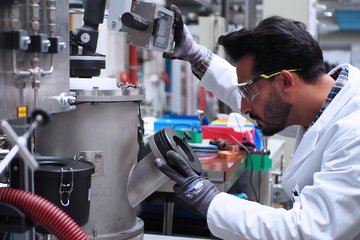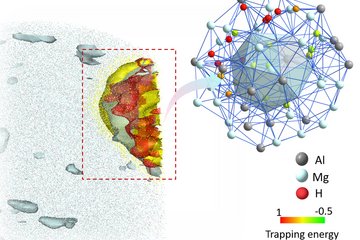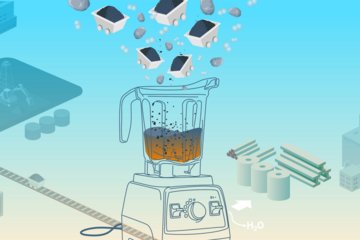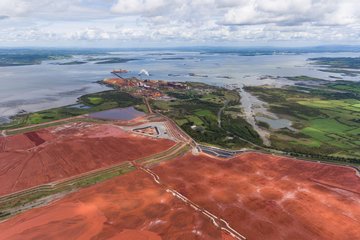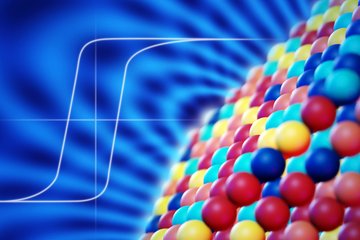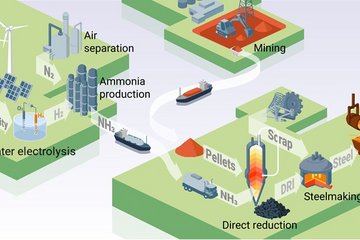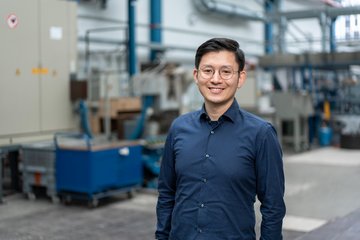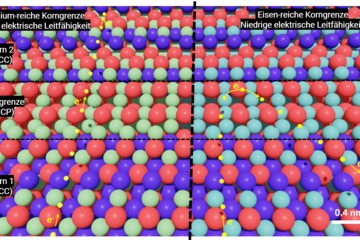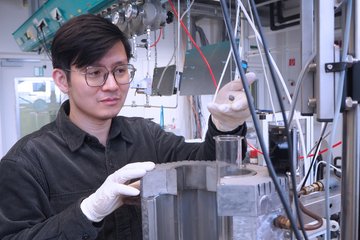Alle Typen
1721.
Vortrag
Ab initio study of thermodynamic, structural, and elastic properties of Mg-substituted crystalline calcite. TMS 2011, San Diego, CA, USA (2011)
1722.
Vortrag
Arthropod cuticle: A biological multi-functional composite used as template for nano-to-macro-scale hierarchical modelling. Euro BioMat, Jena, Germany (2011)
1723.
Vortrag
Arthropod cuticle: A biological multi-functional composite used as template for nano-to-macro-scale hierarchical modelling. THERMEC 2011, Quebec, Canada (2011)
1724.
Vortrag
Mesoscopic modeling of red blood cell dynamics. Oberseminar: Theorie komplexer Systeme WS 2010, Institut für Theoretische Physik, Universität Heidelberg, Germany (2010)
1725.
Vortrag
Modeling the hardening behavior of TWIP steels: A statistical dislocation density-based approach. MRS 2010 Fall Meeting, Boston, MA, USA (2010)
1726.
Vortrag
Design Principles of Load-bearing Cuticle from different Crustacean Species evaluated experimentally and by Ab initio-based Multiscale Simulations. MRS Fall Meeting 2010, Boston, MA, USA (2010)
1727.
Vortrag
Mesoscopic Modeling of the dynamics of red blood cells. Seminar talk at Ruhr-Universität Bochum, Lehrstuhl für Biophysik, Bochum, Germany (2010)
1728.
Vortrag
Solving Elastoviscoplastic Mechanical Boundary Value Using a Spectral Method. Evaluierung des Christian-Doppler-Laboratorium für Werkstoffmechanik von Hochleistungslegierungen, Garching, Germany (2010)
1729.
Vortrag
Ab initio based multiscale modeling of biological composites: Example of the exoskeleton of the lobster Homarus Americanus. Colloquium Lecture, Center for Nanoscience CeNS, Ludwigs-Maximilians Universität München, München, Germany (2010)
1730.
Vortrag
Towards the limits of strength: Design and understanding of ultra high strength steels. Colloquium, Ludwig-Maximilians-Universität, München, Germany (2010)
1731.
Vortrag
Crystal mechanics of the martensitic transformation: Crystal plasticity, ab initio models, experiments. Colloquium Lecture, Institute for Mechanics, University of Dortmund, Dortmund, Germany (2010)
1732.
Vortrag
Using ab-initio based multiscale models and experiments for alloy design. Colloquium Lecture, Institute for High Performance Computing, Agency of Science, Technology and Research, Singapore City, Singapore (2010)
1733.
Vortrag
Compositional Dependence of the Mechanical Properties of Laves Phases in the Fe–Nb(–Al) and Co–Nb(–Al) Systems. MRS Fall Meeting 2010, Boston, MA, USA (2010)
1734.
Vortrag
Impurity segregation at CuInSe2-based grain boundaries. 3rd International Conference on "Advanced Composite Materials Engineering", COMAT 2010, Brasov, Romania (2010)
1735.
Vortrag
Effect of grain refinement to 1 µm on deformation and fracture mechanisms in ferrite/martensite dual-phase steels. 2nd International Conference on Super-High Strength Steels SHSS, Peschiera del Garda, Italy (2010)
1736.
Vortrag
Identification of fundamental materials‐design limits in ultra lightweight Mg–Li alloys via quantum-mechanical calculations. Multiscale Materials Modeling, Freiburg, Germany (2010)
1737.
Vortrag
Arthropod cuticle: A biological multi-functional composite used as template for nano-to-macro-scale hierarchical modeling. Multiscale Materials Modeling, Freiburg, Germany (2010)
1738.
Vortrag
Multi phase cellular automaton simulation of the heat treatment of dual phase steel. MMM 2010 Fifth International Conference Multiscale Materials Modeling, Freiburg. Germany (2010)
1739.
Vortrag
Surface Topographies after Nanoindentation and their Utilization to Quantify the Plastic Anisotropy of Gamma-TiAl on the Single Crystal Length Scale. MMM 2010, Freiburg, Germany (2010)
1740.
Vortrag
Crystal plasticity modeling and experiments to improve the micromechanical understanding of single crystal gamma-TiAl and gamma-TiAl based microstructures. MMM 2010 Fifth International Conference Multiscale Materials Modeling, Freiburg, Germany (2010)
